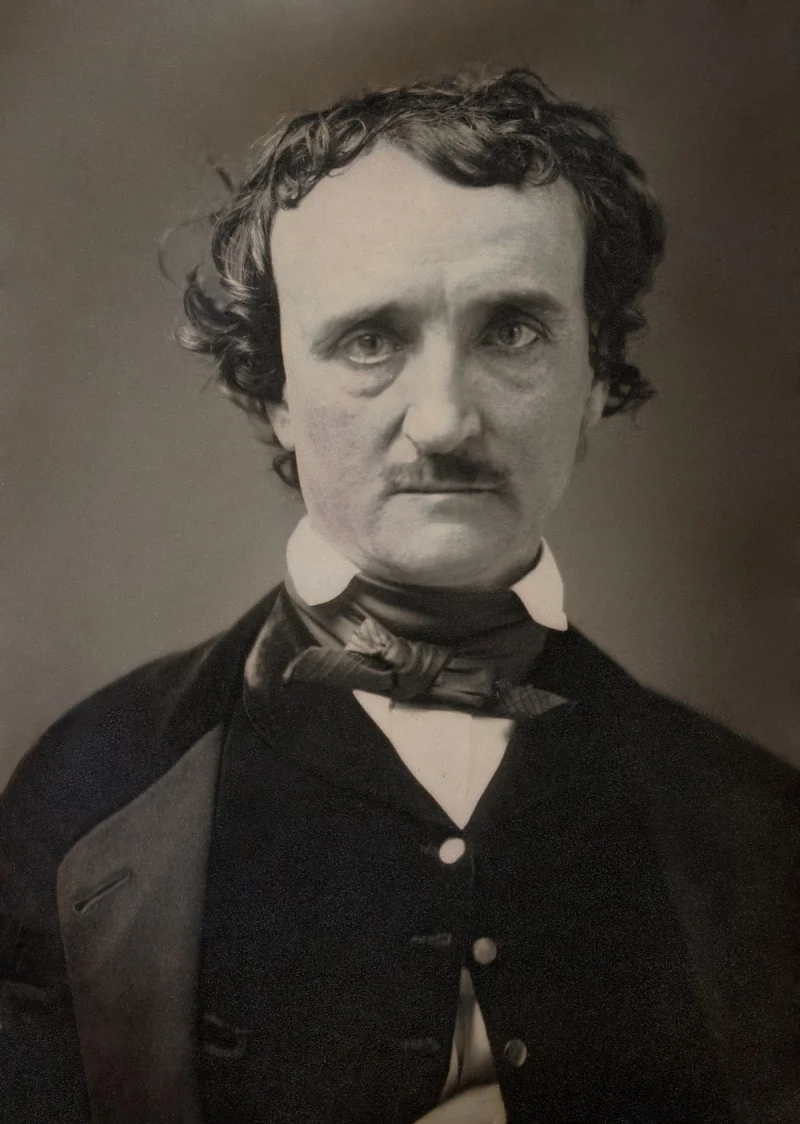Short Summary
Edgar Allan Poe was a 19th-century American writer known for his macabre and gothic works of fiction and poetry. He is best remembered for his tales of mystery and horror, and his contributions to the development of the detective fiction genre. Poe's works, such as "The Tell-Tale Heart" and "The Raven," have left an indelible mark on American literature and continue to influence writers and filmmakers worldwide. Despite personal struggles and financial difficulties, his literary achievements have secured his legacy as a pivotal figure in American and gothic literature.
Early Life & Education
Edgar Allan Poe was born on January 19, 1809, in Boston, Massachusetts, to actors David and Elizabeth Poe. Orphaned by the age of three, he was taken in by John and Frances Allan, a wealthy couple from Richmond, Virginia. Although he never formally adopted him, John Allan provided for Poe's education, sending him to the University of Virginia in 1826. However, Poe's time there was short-lived due to gambling debts and financial troubles. He later attended the U.S. Military Academy at West Point but was eventually dismissed. These early experiences, marked by loss and financial struggle, heavily influenced his writing style and themes.
Career Highlights
Poe's literary career began with the publication of his first book, "Tamerlane and Other Poems," in 1827. He worked as an editor for various literary journals, including the "Southern Literary Messenger" and "Graham's Magazine," where he gained a reputation as a harsh literary critic. In 1845, the publication of "The Raven" brought Poe significant fame, establishing him as a prominent writer of his time. His inventive storytelling and development of the detective fiction genre, particularly through works like "The Murders in the Rue Morgue," showcased his skill in blending psychological depth with gripping narratives. Despite his struggles, Poe's creativity and literary innovations were unparalleled.
Major Achievements
- The Raven: Published in 1845, this poem became an immediate success and remains one of his most famous works.
- The Murders in the Rue Morgue: Considered the first modern detective story, it laid the groundwork for future detective fiction.
- Editor Roles: His editorial work helped shape the literary standards of his time.
- Innovative Literary Criticism: Poe's critical reviews were influential in the literary community.
Famous Quotes
- "All that we see or seem is but a dream within a dream."
- "I became insane, with long intervals of horrible sanity."
Interesting Facts
- He married his 13-year-old cousin, Virginia Clemm.
- Poe was found delirious on the streets of Baltimore shortly before his death, under mysterious circumstances.
- He is credited with inventing the modern detective story.
- Despite his fame, he struggled financially throughout his life.
- He was known for his rivalry with other writers and critics.
Legacy / Influence
Edgar Allan Poe's legacy is profound, as he laid the foundation for modern horror and detective genres. His exploration of the human psyche and use of suspense continue to captivate readers and inspire writers, filmmakers, and artists. His works have been translated into numerous languages, and his influence is evident in contemporary literature and popular culture, cementing his status as a timeless literary icon.
FAQ
Q: Why is Edgar Allan Poe famous?
A: He is famous for his macabre poems and stories, and for pioneering the detective fiction genre.
Q: What are some of his most notable works?
A: "The Raven," "The Tell-Tale Heart," and "The Murders in the Rue Morgue" are among his most celebrated works.
Q: How did Edgar Allan Poe die?
A: He died under mysterious circumstances in Baltimore in 1849, with the exact cause of death remaining unknown.
Q: What was his impact on literature?
A: Poe's work influenced the development of horror and detective fiction, and he is renowned for his innovative storytelling techniques.









